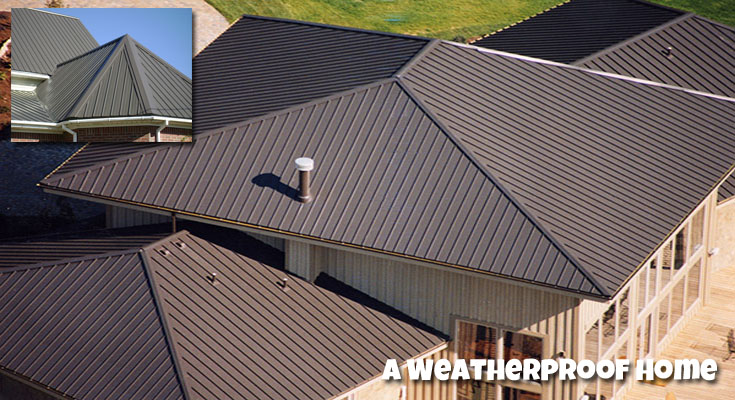Your home is your safe place and sanctuary. It should protect you from the elements and keep you and your family safe. Natural disasters can occur anytime and your home must be ready for it.
The US experiences tornadoes, floods, and hail every year. Weather patterns have also been changing due to climate change. If you have not experienced heavy downpours that lead to flooding before, there is no guarantee that you won’t be experiencing it in the coming years.
Adapt Your Home to Extreme Weather Conditions
While there is no way to completely weatherproof your home, you can take certain steps that increase your home’s resistance against the onslaught of extreme weather.
Buying a house is a big investment. Do not just judge a house by how it looks. Make sure that it is strong and resistant to the forces of nature.
Here are some adaptive methods that you can do to make your home ready for all weather conditions.
- Secure your roof
Choosing the right materials for your roof can make a difference when a storm or a tornado strikes. Some materials can withstand strong winds that can easily blow other roofs away. One material known to be resistant even to extreme winds is metal roofing. Metal panels are locked tightly together that storm winds cannot easily lift them and blow them away. You can also opt for panel fasteners and an interlocking design to ensure the stability and strength of your roof. To increase the resistance of your roof, anchor them to your walls using hurricane ties.
If your area is prone to hailstorms, metal roofs are also impact-resistant. Ensure that your roofs are always well-maintained and in good shape. For high-intensity rainfalls, a clean and working gutter and drainpipes are a must
- Protect your windows and doors
Storms can also damage your glass windows. Storm shutters can help protect them from tropical storms, heavy rainfalls, hailstorms, winter storms, and tornadoes. You can also invest in impact-resistant glasses if possible, although it may run a little costly. If these are not possible, you can install plywood shutters.
During a hailstorm, make sure to close your drapes, blinds, or any window shades. This will protect you from shards of broken glass should your windows get damaged.
For the cold, make sure to seal the gaps and caulk any cracks in your windows. The smallest gaps in your windows can let the cold air in and let the warm air escape.
The same can be done for your doors, especially if part of it is made of glass. Make sure that your doors are wind-resistant. It should have three hinges at the very least, and a deadbolt lock that is at least an inch long.
If you have a garage door, it can prove to be a weakness since it is the largest opening in your home. It is a vulnerability that you must address before a storm or a hurricane ravages your home. Strong winds that will enter through your garage door can endanger your roof.
- Protect your home from water intrusion
Flooding can damage your home and your properties. Hurricanes and tropical storms can bring in as much as 20 inches or more rainfall on a given day. There are worse problems than flooding, but flooding will not just ruin your furniture and appliances. It can also ruin your electrical, as well as weaken the foundations of your home over time.
If you live in the coastal areas, you can prepare sandbags and create a barrier around your house to prevent the water from coming in.
If you have a basement, it has a high chance for it to be flooded. If there are cracks in the walls and floor, water can enter through them via the drainage lines. Make sure that you have installed check valves in the sewer lines to keep water from going up your drain pipes. Get a sump pump to move the water from your basement.
- Prepare your exteriors
If you have decks or patios, make sure that they are made from durable and waterproof materials. When expecting a storm, you should also trim the trees in your yard. Dead branches can easily fall on your roof, your car, or anyone passing by. If you use rocks in your landscaping, remove or replace them. High winds can blow them off, and they can end up hitting your windows. Keep landscape furniture in your shed or garage in the meantime, if you are expecting strong winds. Keeping your lawn clean and clear of debris, furniture, and tools can reduce the risk of anything hitting your sidings and your windows.
Check your exteriors for any loose siding. When caught by a strong wind, these loose sidings can get blown away. It will leave your home exposed and vulnerable to more damage. Make sure that you repair these sidings before any storm comes.
- Review your insurance
Being aware of your insurance coverage can help you know where you stand. Each insurance product is different. After the storm, you can call your insurance agent if you wish to update your coverage in preparation for the future.
With luck and enough preparation, your home can survive a natural disaster. Be vigilant and always prepare your home for the worst. Update your insurance, upgrade your home if needed, and keep it regularly maintained.





